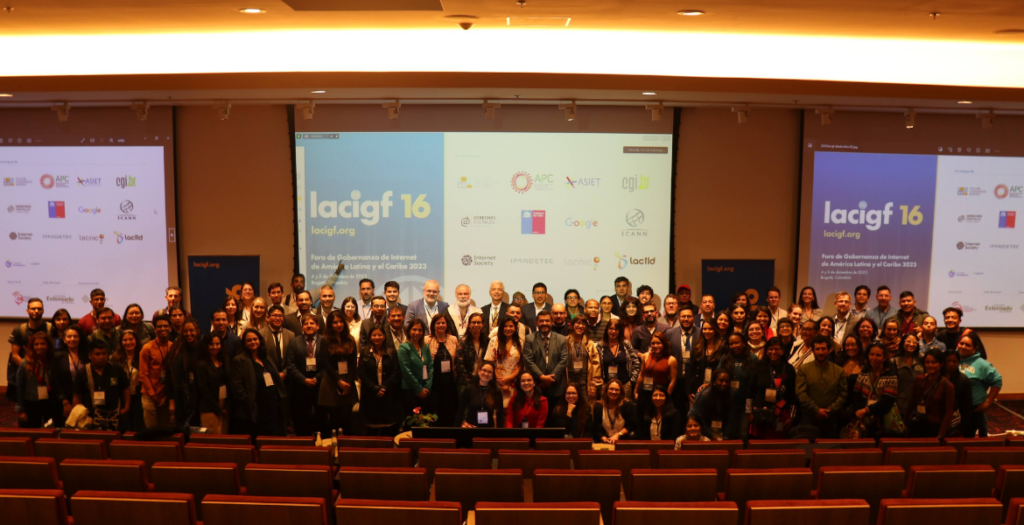LACIGF thanks all the people who actively participated in the 16th edition – 2023

After three years we met again in person, carrying out our mission to provide a space for open policy dialogue on Internet governance issues; where different local actors in the region participated, made valuable contributions and promoted relevant issues for the development and governance of the Internet in Latin America and the Caribbean.
Thanks to all the people who made this new meeting possible, representatives of academia, the private sector, civil society, technical community, government and all interested parties, their active participation strengthens the Internet world and positively impacts digital governance.
Through the sessions held at LACIGF 16, we learned about models and experiences that achieve significant changes in the digital ecosystem and therefore our call is to continue promoting the active participation of all sectors in order to have an inclusive and equitable global digital world.
On the first day, data governance was discussed, highlighting that the power must be returned to the individual to question what, why and for what purpose certain information is requested. The panel on policies for universalizing access discussed factors that influence the gap such as geography, lack of devices and digital literacy, as well as the importance of local content creation. When discussing AI and emerging technologies, the importance of developing technologies from Latin America linked to ethical principles and with public-private collaboration was highlighted. The future of LACIGF and the implementation of the new statutes to achieve a more dynamic and participatory process were also discussed.
The second day began with the participation of Carol Roach, chair of the Multistakeholder Advisory Group of the United Nations Internet Governance Forum, MAG, who invited the various stakeholders to take part in the discussion and create more digital capabilities. In the cybersecurity panel, the importance of collaboration between the State, public and private sectors was highlighted. Regarding digital governance, the importance of innovating in governance and participation mechanisms more oriented to processes was discussed. The regional and national NRI Internet Governance initiatives also had a space to discuss the lessons learned and challenges. Finally, the discussion on Blockades focused on the different types of blockades, their impact and the relevance of multi-sectoral participation to better understand the technology and legislate effectively and fairly.
During the meeting, the importance of multi-sectoral dialogue to address the various issues of Internet governance was highlighted.
We thank the 170 people who participated in person in the city of Bogota, Colombia; the people who connected and participated through Youtube achieving more than 900 views and all the people who interacted in our social networks Thank you!
We also extend our thanks to the more than 50 panelists and moderators from different sectors, who were willing to listen and share their vision on each of the topics, enriching the discussion and generating spaces for dialogue and reflection.
Finally, we would like to thank the Universidad Externado who welcomed us in their space and provided us with all the facilities for the discussions.
From the LACIGF secretariat, we call on the community to continue participating in the Internet Governance discussions and to get involved in the intersectoral committees and in the workshop selection committee in 2024
